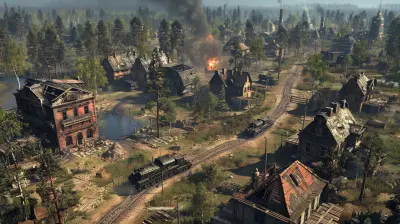The Role of NPCs in Making Action Games Feel Alive
14 November 2025
When you boot up your favorite action game, it’s easy to get caught up in the explosive gunfights, heart-pounding boss battles, or those edge-of-your-seat chase sequences. But have you ever stopped for a second to look around at the world—at the people who aren’t shooting at you, racing alongside you, or trying to kill you?
Yeah, I’m talking about NPCs—non-playable characters. These seemingly unimportant digital folks are often overlooked, but they play a massive role in making action games feel immersive, dynamic, and, well, alive.
In this article, we’re diving deep into how NPCs add soul to action games. We'll chat about how they shape the game world, affect gameplay, and make the difference between a bland sandbox and a living, breathing universe. So grab your pixelated coffee; things are about to get interesting.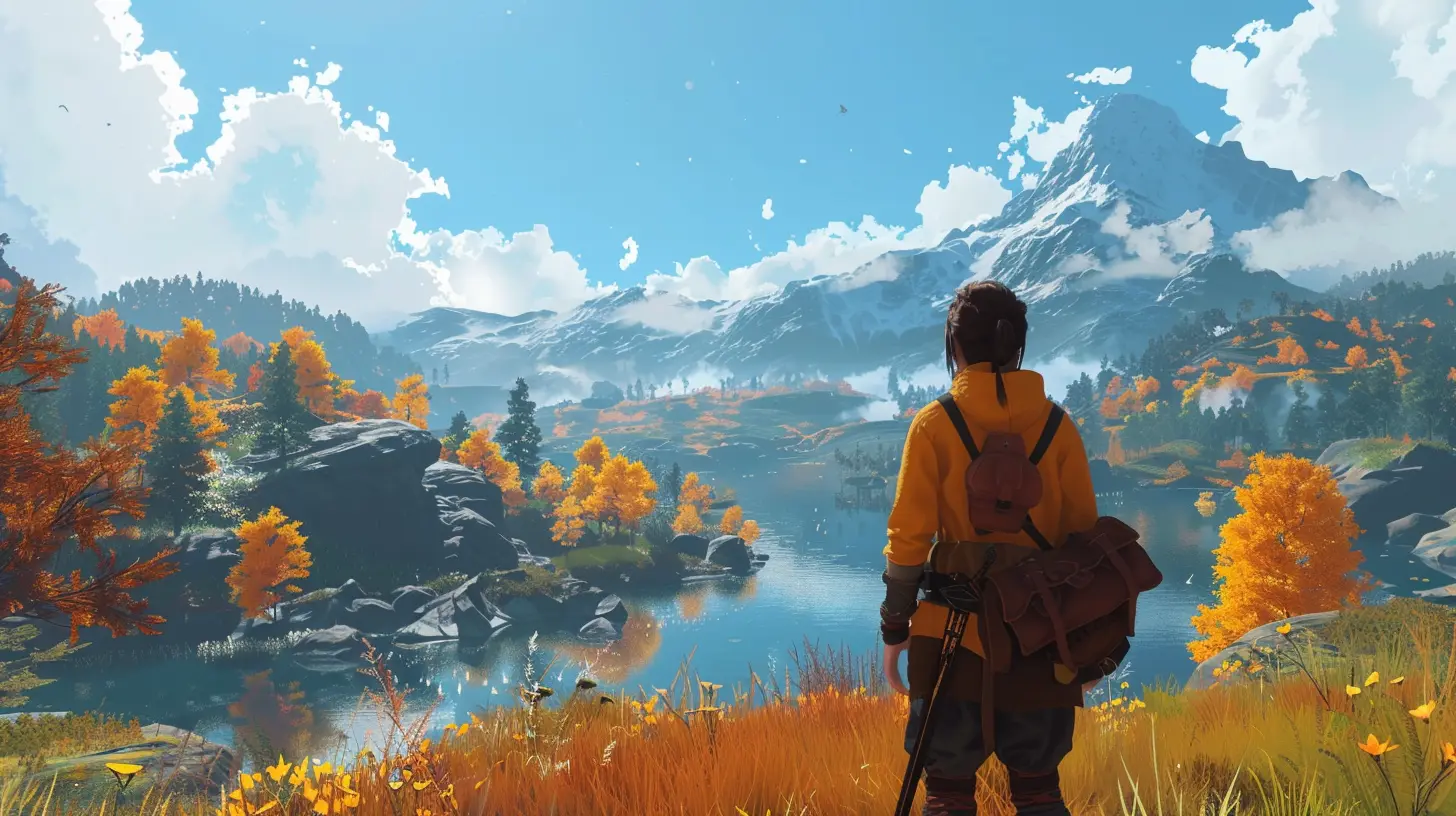
What Are NPCs, Really?
Alright, let’s start with the basics. NPC stands for Non-Playable Character. They’re the characters in a game you don’t control—everyone from the shopkeeper who sells you ammo to the random pedestrian yelling at you for speeding on the sidewalk.In action games, NPCs show up in all kinds of forms:
- Allies who fight beside you
- Enemies you're supposed to defeat
- Civilians who populate the world
- Vendors and mission givers who help progress the story
Some are deeply integrated into the plot, while others just exist to make the environment feel more convincing. But all of them—yes, even that chicken pecking around in the background—play a part in the bigger picture.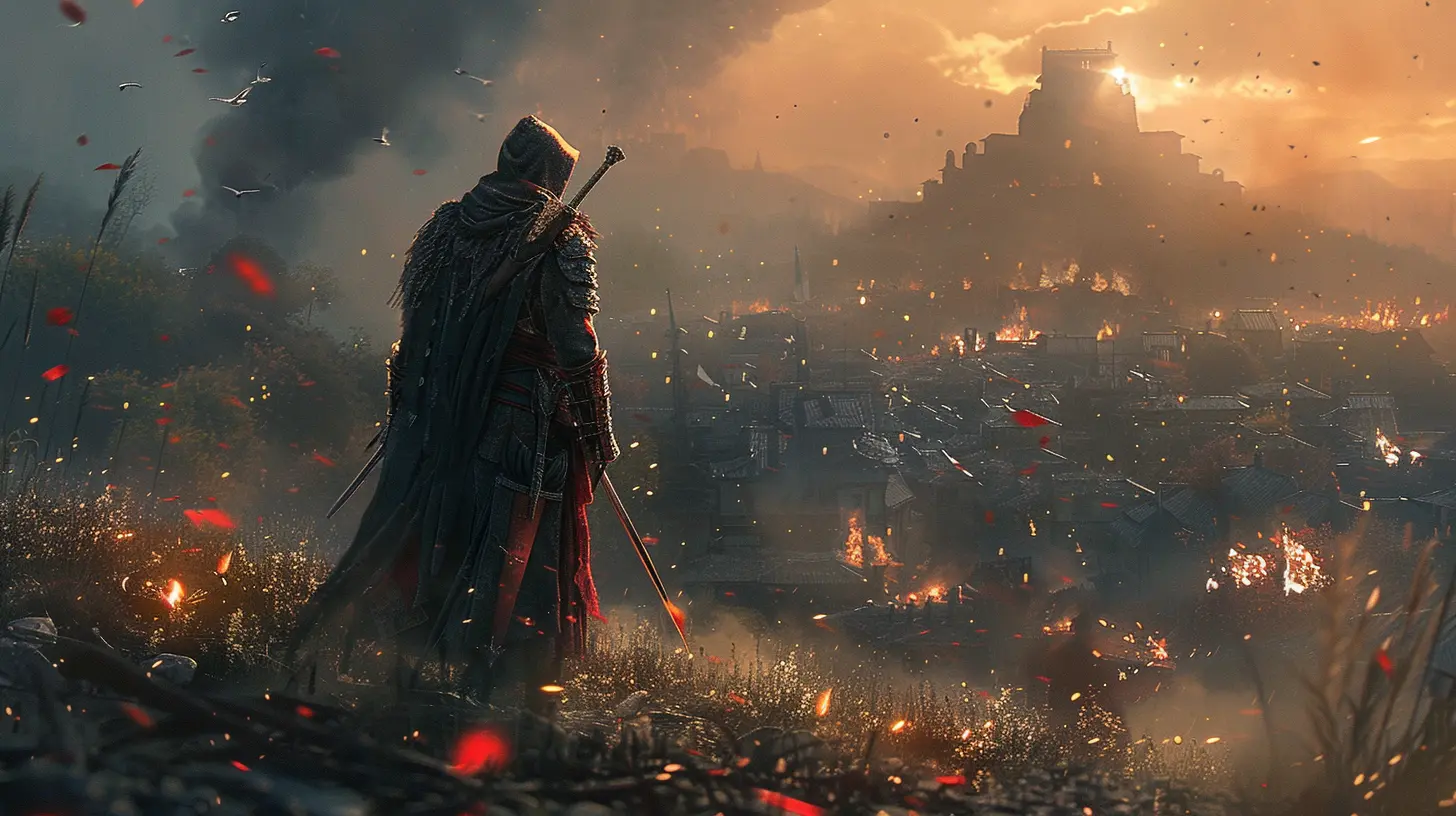
Setting the Stage: How NPCs Build the World
You know how in movies, background actors keep scenes from looking empty? NPCs do the same in video games. A bustling market, a crowded subway, or a war-torn battlefield gets its vibe not just from graphics, but from how characters move and interact within it.Giving Life to Dead Space
Imagine walking through a city in an action game, and there’s no one around. Just empty buildings and deserted streets. Creepy, right? Without NPCs, even the most visually stunning environments feel hollow.Now add citizens talking on phones, street performers showing off, cops chasing criminals, or just people sitting at cafés. Suddenly, it's not just a city—it's their city. You feel like you’re part of something bigger. You're not a lone hero in a static level; you're one of many lives intersecting in real-time.
Making the Environment Reactive
Great NPCs don’t just exist—they react. Think about games like Grand Theft Auto V, where NPCs scream and run if you start shooting, or games like Red Dead Redemption 2, where folks remember your face and treat you differently based on past interactions.These reactions create a feedback loop. You affect the world, and the world reacts to you. That reaction is what makes a game feel real. The world isn’t just a set—you’re not just playing a scene. It’s a playground that responds to your presence.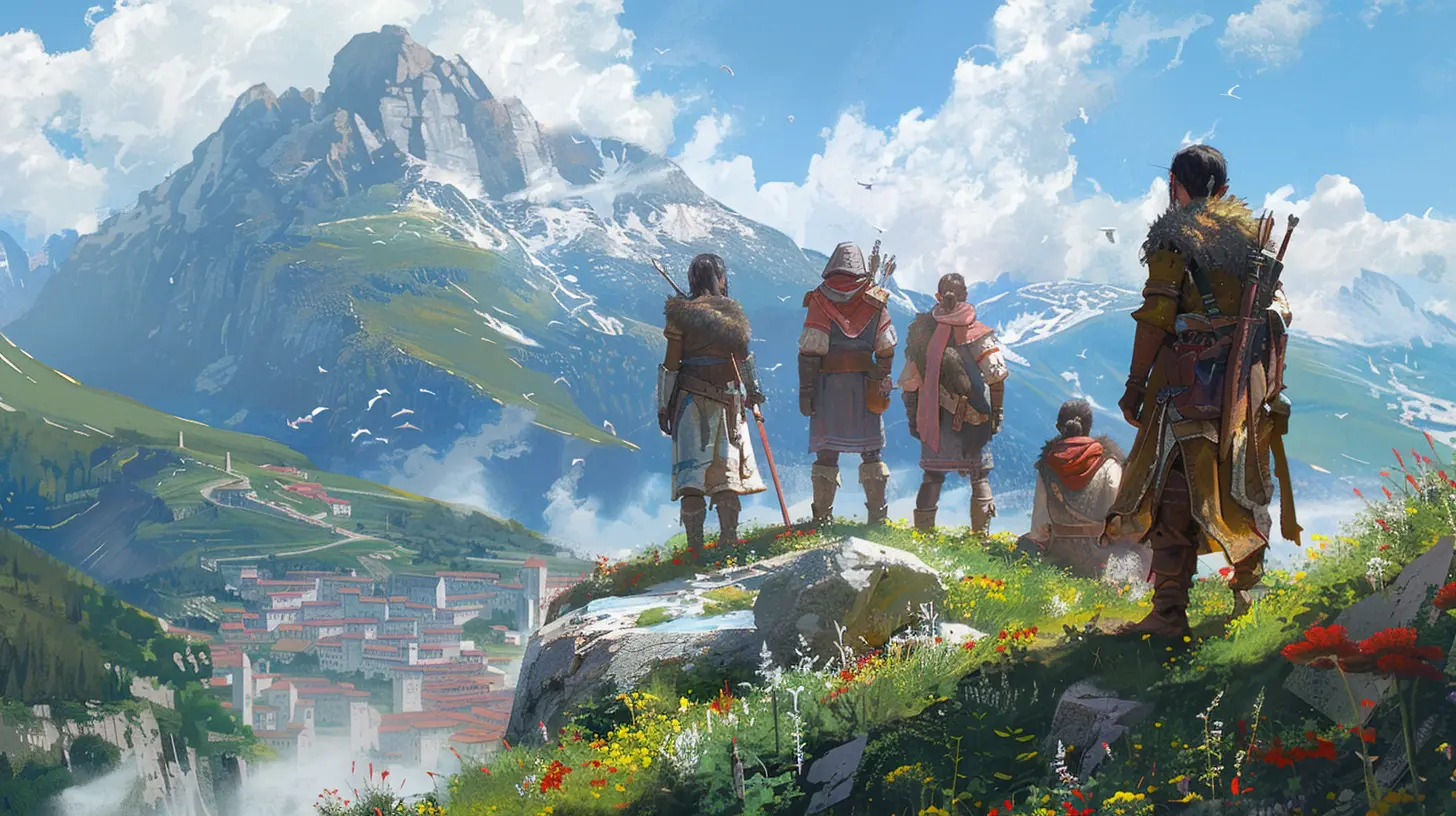
NPCs as Narrative Tools
Let’s get one thing straight—game stories aren’t just told through cutscenes and dialogue. They’re told through interaction, and NPCs are a big part of that.Exposition Without Feeling Forced
NPCs can provide backstory, world-building, and plot hints in a way that feels natural. Think of the bartender in an action RPG who casually mentions rising tensions between factions. Or the soldier making a sarcastic comment about the latest mission briefing. These bits of exposition add flavor without breaking immersion.And if you’re anything like me, you probably enjoy piecing together a story yourself rather than having it spoon-fed, right?
Emotional Anchors
Action games thrive on adrenaline, but throw in a well-written NPC and you’ve got emotional depth too. Think of Ellie from The Last of Us, or Atreus in God of War. They’re not just tag-alongs; they make you feel something.Suddenly, you’re not just hacking and slashing through levels—you care about someone. NPCs can give your character motivation, and that motivation gives the gameplay emotional weight.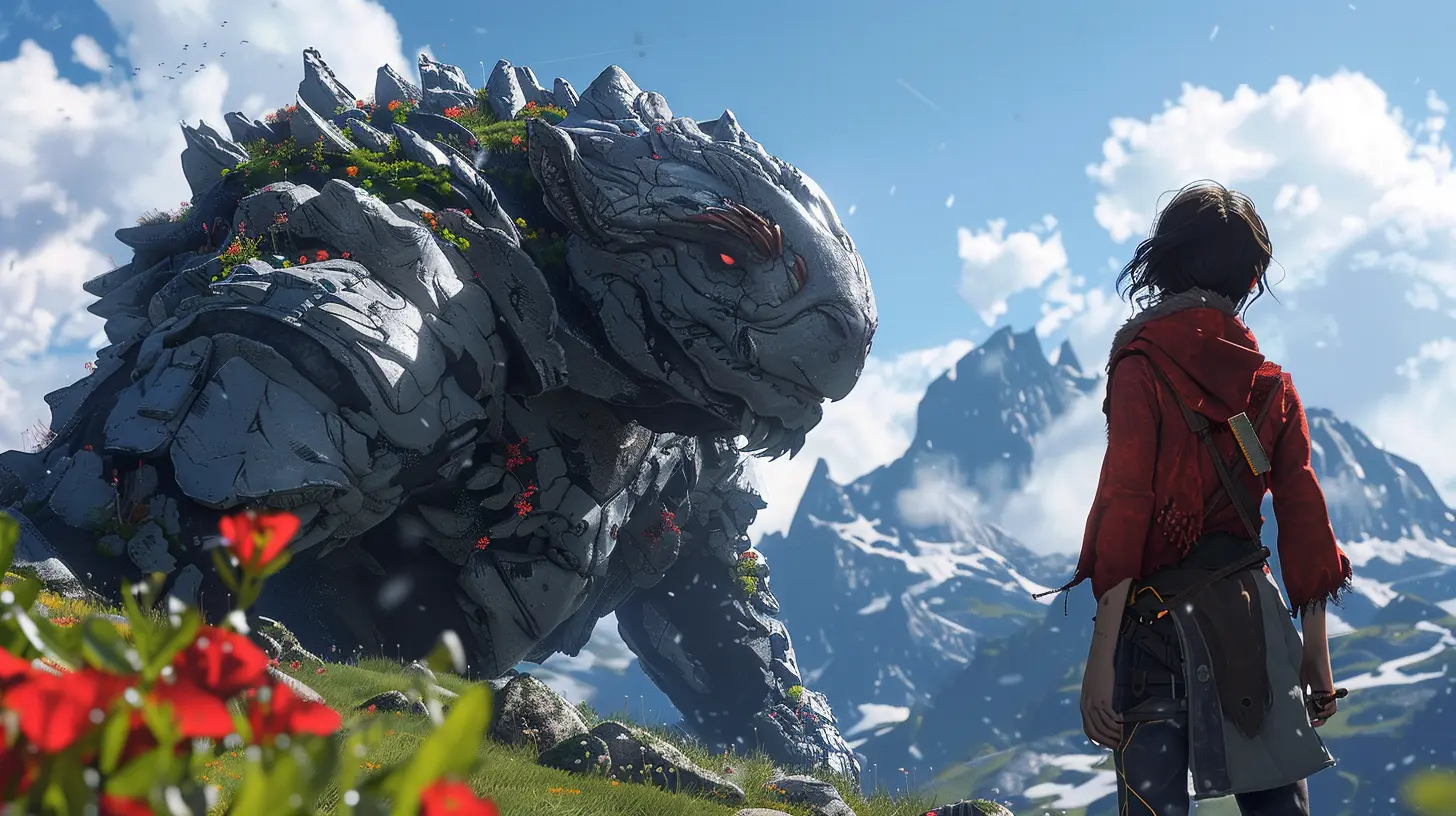
Gameplay Dynamics: More Than Just Background Noise
Okay, so we’ve talked about how NPCs juice up the world and the story. But what about gameplay? Oh yeah—NPCs can seriously impact how you play.Dynamic Combat Scenarios
Some NPCs are designed to spice up fights. Think of friendly soldiers who distract enemies, or rival factions that get into their own skirmishes, allowing you to sneak past unnoticed. This unpredictability adds layers to combat strategy.The Dishonored series, for example, uses NPCs not just as enemies or allies, but as pieces on a chessboard. Who you kill, spare, or help can change how other characters act—and even alter the outcome of the game.
Quest Variety and Replayability
NPCs often serve as quest-givers, but how they’re implemented matters. If they're just standing in one place 24/7 with a speech bubble over their head—meh. But if you overhear someone complaining about bandits while shopping at the market, and that opens a new side mission? That’s engaging.Better yet, dynamic NPC behavior can lead to quests you never saw coming. Maybe a gang attacks a town, and the blacksmith you usually buy from is kidnapped. Now you’ve got a rescue mission that wasn’t planned. That kind of organic gameplay is where NPCs shine.
AI and Behavior: The Brains Behind the Brawn
Let’s geek out for a sec—because the way NPCs behave isn’t magic; it’s good ol’ artificial intelligence. And trust me, not all NPC brains are created equal.Pathfinding and Movement
Poor pathfinding is an immersion killer. We've all laughed at that one NPC stuck in a wall or walking into a tree. But when done right, NPCs navigate the world smoothly, avoiding obstacles, following you naturally, or even taking cover in a firefight.Good movement AI helps NPCs feel alive—even when you’re not directly interacting with them.
Decision-Making and Scripting
NPCs with sophisticated decision trees can make moment-to-moment gameplay feel dynamic. For example, guards that search for you intelligently in Metal Gear Solid based on noise or footprints contribute to that cat-and-mouse intensity.Scripting adds another layer. If an NPC says something unique depending on what weapon you’re carrying or what you just did in the last mission, it creates a sense of continuity. It's like they’re paying attention.
The Illusion of Life: Breaking vs. Maintaining Immersion
Here’s a key point—good NPCs maintain the illusion of a living world. Bad ones can break it faster than a game-breaking bug.When NPCs Work
Games like Cyberpunk 2077 (post-patches, of course) and Skyrim thrive on NPC interactions. Even something as small as bumping into someone and hearing them react can reinforce immersion.You feel like you're intruding in a world that runs whether you’re watching or not.
When NPCs Fail
On the flip side, nothing bursts the immersion bubble like broken NPC behavior. Repetitive dialogue, looping animations, or characters that ignore dramatic world events? Yeah, that’ll kill the vibe real quick.If a town just got burned to the ground but the NPCs are still talking about the weather, that’s a mismatch—and it reminds you, “Oh right, I’m in a game.”
The Evolution of NPC Roles in Action Games
Over the years, NPCs have gone from cardboard cutouts to complex AI-driven characters. Let’s do a quick time-travel run.The Classic Era: Static and Scripted
Back in the early days (think Doom, GoldenEye, and the like), NPCs had one job—exist or die.They had limited lines, no interactivity, and usually followed simple patterns. They weren’t meant to build immersion; they were obstacles... or scenery.
The Modern Era: Reactive and Relatable
Fast forward to now, and NPCs are practically co-stars. Thanks to better AI, voice acting, and storytelling, they now have routines, unique personalities, and relationships with the player.Games like Assassin’s Creed, Watch Dogs, and Far Cry are visual proof of how far NPCs have come in complexity and importance.
Let’s Wrap It Up
NPCs are the unsung heroes of action games. They don't just fill space—they fill purpose. They breathe life into the world, deepen the story, and make gameplay more unpredictable and engaging.Without them, you’re just playing in a beautifully rendered ghost town. With them, you’re living in a world that feels real, chaotic, and full of surprises.
So next time you’re sprinting through a digital battlefield or exploring a futuristic city, take a second to notice the people around you—the passerby, the ally, the enemy soldier cowering in fear. They’re not just background noise. They’re the heartbeat of the game.
all images in this post were generated using AI tools
Category:
Action GamesAuthor:

Pascal Jennings
Discussion
rate this article
1 comments
Vanta Pacheco
NPCs enrich gameplay, enhancing immersion and realism.
November 18, 2025 at 4:12 AM

Pascal Jennings
Absolutely! NPCs add depth to the game world, making it feel vibrant and immersive, ultimately enhancing the player's experience.


